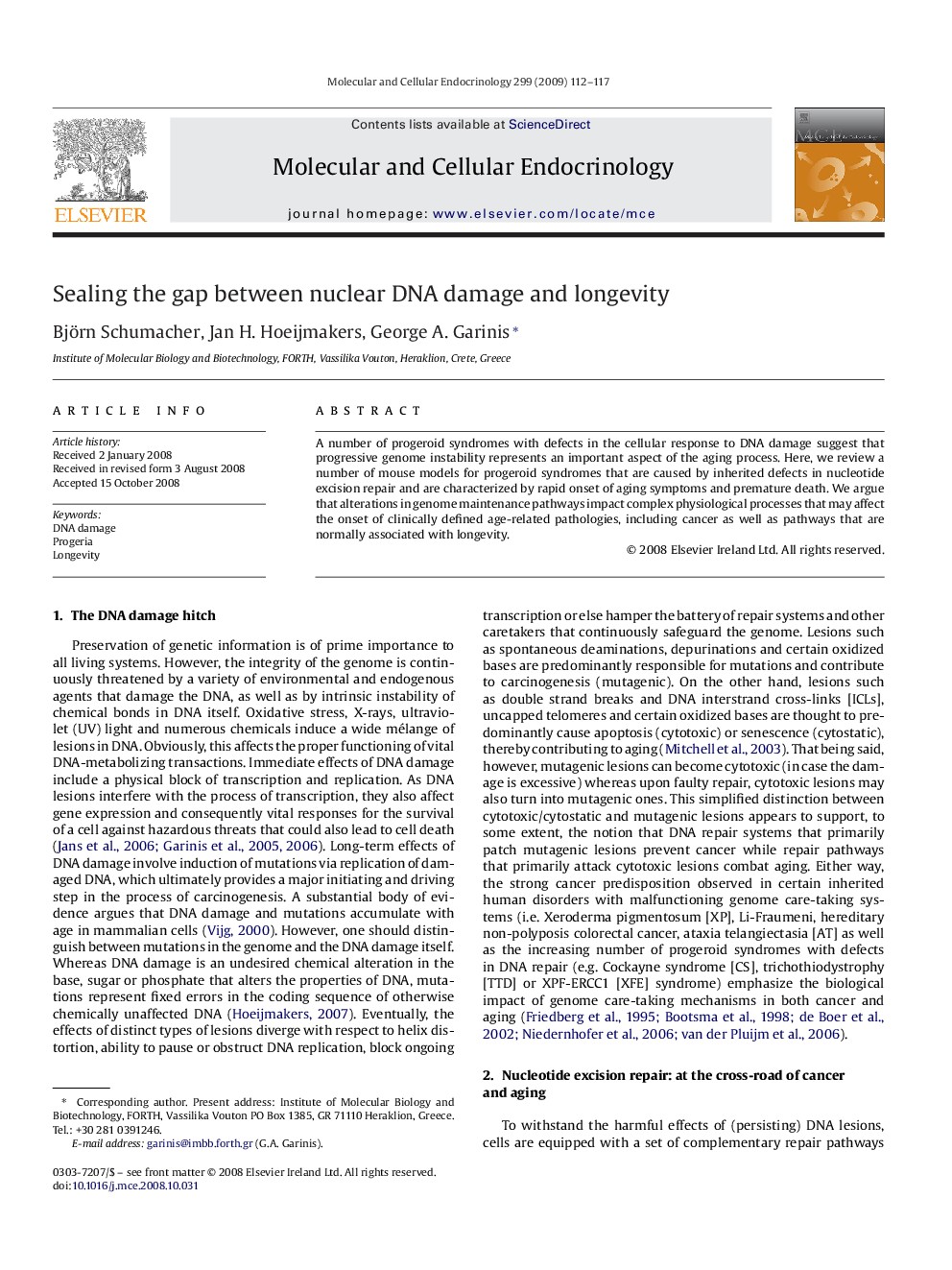| Article ID | Journal | Published Year | Pages | File Type |
|---|---|---|---|---|
| 2197468 | Molecular and Cellular Endocrinology | 2009 | 6 Pages |
Abstract
SummaryA number of progeroid syndromes with defects in the cellular response to DNA damage suggest that progressive genome instability represents an important aspect of the aging process. Here, we review a number of mouse models for progeroid syndromes that are caused by inherited defects in nucleotide excision repair and are characterized by rapid onset of aging symptoms and premature death. We argue that alterations in genome maintenance pathways impact complex physiological processes that may affect the onset of clinically defined age-related pathologies, including cancer as well as pathways that are normally associated with longevity.
Keywords
Related Topics
Life Sciences
Biochemistry, Genetics and Molecular Biology
Cell Biology
Authors
Björn Schumacher, Jan H. Hoeijmakers, George A. Garinis,
